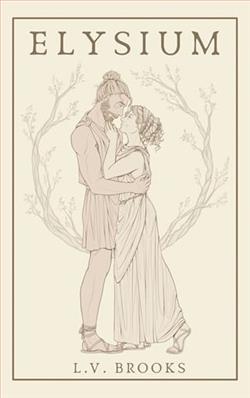Martial Peak Reviews
L.V. Brooks’ novel Elysium is a poignant exploration of love, loss, and the intricate dance of reconnection. Set against the backdrop of post-war recovery, the story delves into the lives of Odysseus and Penelope, two characters whose names echo the epic tales of Homer, yet their struggles are deeply personal and contemporary. Brooks crafts a narrative that is both timeless and timely, drawing readers into a world where the past and present collide with emotional intensity.
The central theme of Elysium is the enduring power of love and the challenges of rebuilding relationships after prolonged separation. Odysseus, having crossed an ocean to return to Penelope, finds himself grappling with the reality that neither he nor she is the same person they once were. This theme of transformation is beautifully woven throughout the novel, highlighting the complexities of identity and the impact of time on human connections. Brooks masterfully illustrates that while love can be a powerful force, it is not immune to the ravages of time and circumstance.
Character development is one of the novel’s strongest elements. Odysseus is portrayed as a man haunted by his experiences, carrying the weight of his past like a shadow that refuses to fade. His journey is not just a physical return but an emotional and psychological one, as he struggles to reconcile the man he has become with the man he once was. Penelope, on the other hand, is a testament to resilience and adaptability. Having spent two decades learning to live without Odysseus, she embodies strength and independence, yet her heart remains tethered to the love that once defined her existence.
The dynamic between Odysseus and Penelope is both heart-wrenching and hopeful. Brooks captures the tension and tenderness of their reunion with a deft hand, allowing readers to feel the weight of their shared history and the uncertainty of their future. The dialogue between them is rich with subtext, revealing the layers of emotion that lie beneath their words. As they navigate the complexities of their relationship, readers are invited to reflect on their own experiences of love and loss, making the story deeply relatable.
Brooks’ writing is both lyrical and evocative, painting vivid pictures of the emotional landscapes the characters traverse. The author’s use of language is particularly noteworthy, as it captures the nuances of emotion with precision and grace. The novel’s pacing is deliberate, allowing the story to unfold with a sense of authenticity that mirrors the gradual process of healing and reconciliation.
In terms of its overall impact, Elysium is a novel that lingers in the mind long after the final page is turned. It challenges readers to consider the nature of love and the ways in which it can be both a source of strength and vulnerability. The story’s exploration of identity and transformation resonates on a universal level, offering insights into the human condition that are both profound and poignant.
Comparatively, Elysium shares thematic similarities with other works that explore the aftermath of war and the complexities of human relationships. For instance, it echoes the emotional depth found in Ian McEwan’s Atonement, where the impact of war on personal lives is examined with a similar intensity. However, Brooks’ novel stands out for its focus on the internal landscapes of its characters, offering a more intimate portrayal of their struggles and triumphs.
In conclusion, L.V. Brooks’ Elysium is a beautifully crafted novel that offers a compelling exploration of love, identity, and the enduring power of human connection. Its themes are universal, its characters richly developed, and its impact profound. For readers seeking a story that delves into the complexities of the human heart, Elysium is a journey worth taking.
























Reviews 0
Post a Reviews: